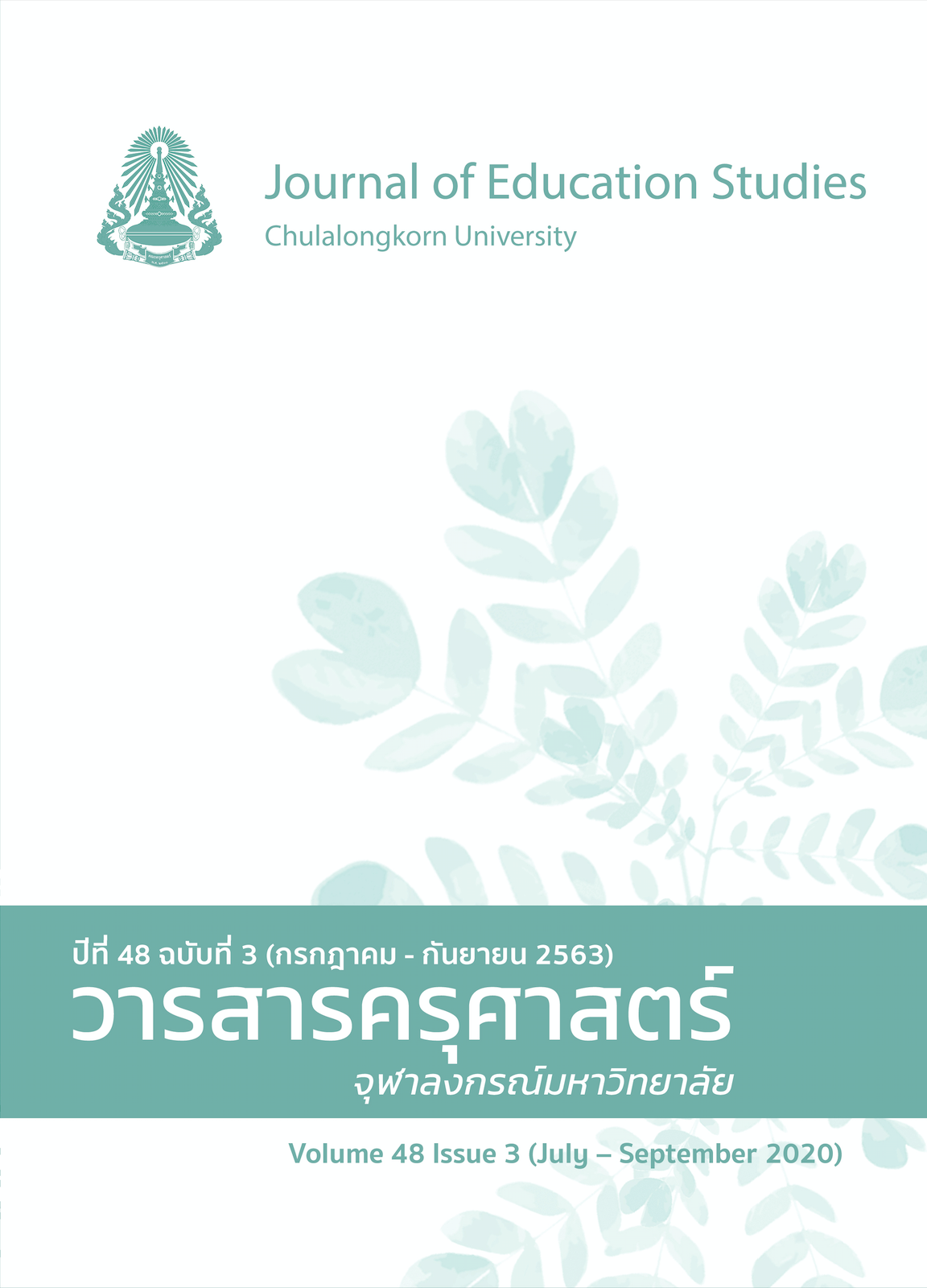School Management in Thailand based on Career-related Programme Concepts
DOI:
https://doi.org/10.14456/educu.2020.35Keywords:
school management, career-related programme, international baccalaureateAbstract
The objective of this study was to investigate school management in Thailand based on career-related programme concepts. The school selected for this study was an international school which applies career-related programme concepts. Interviews were conducted with three key informants, namely, which are two school administrators and one curriculum coordinator. The qualitative data were analyzed using analytic induction.
The research findings reveal three key points. First, curriculum development has three aspects; they are common subjects, core-career subjects (personal and professional skills, service learning, language development, reflective project), and training-career selective subjects, which involves teaching in the two final years of secondary school. Second, teaching and learning management is identified as an academic area, but students can choose either theory or practice, which provides the opportunity to work with an outsourced organization, participating in teaching and providing a unit lesson. The school supports training in cooperation with companies or entrepreneurs by managing the internal teaching process and external evaluations. Third, learning evaluation extends to both the school and the external organization and involves the International Baccalaureate (IB) studies and outsourcing for career selective subjects. Students need to pass three parts of the evaluation in order to receive a Career-related Programme Certificate from the IB organization.
Downloads
Published
How to Cite
Issue
Section
License

This work is licensed under a Creative Commons Attribution-NonCommercial-NoDerivatives 4.0 International License.




